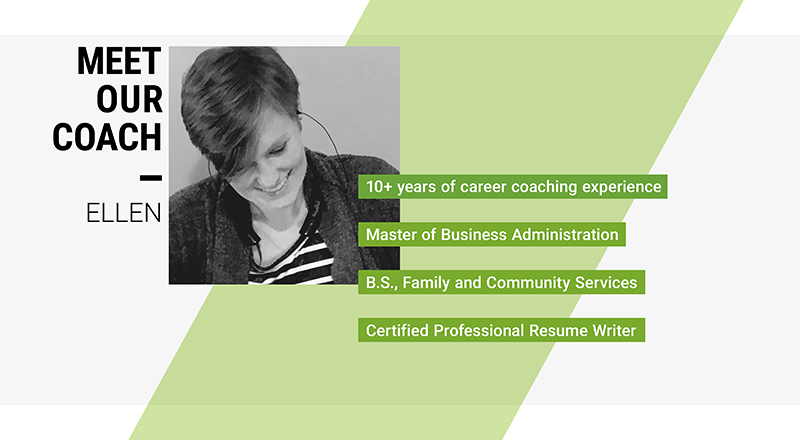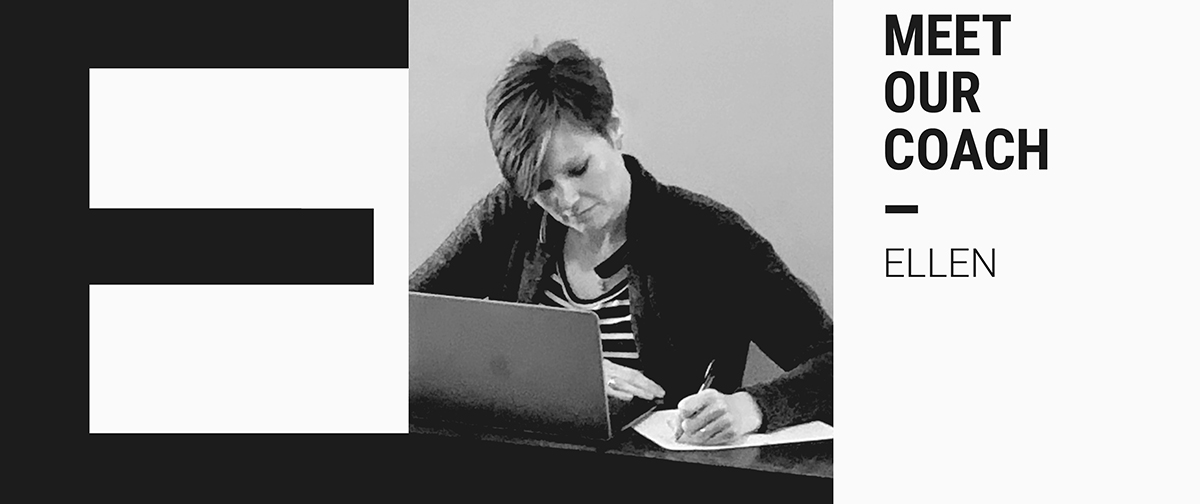“It’s about working as partners”: A Chat with Ellen, Intoo Career Coach
Seeking help isn’t always easy to do, even when we need it. For some job seekers, the idea of asking a career coach for help can bring up unexpected fears. What if the coach criticizes my unsuccessful efforts so far? What if the coach pushes me to stay in a career I’m no longer interested in? What if the coach gets frustrated I still haven’t figured out what I want to do?

Those are the types of anxieties Ellen, Intoo career coach, quickly allays in the clients she works with. With more than 10 years of career coaching experience, Ellen is a master at listening carefully to each individual candidate’s concerns and tailoring her coaching to match their needs. Ellen, who earned her MBA after completing a bachelor of science in family and community services, combines her business acumen with her service-oriented perspective to gently guide her candidates toward their dream jobs and careers.
In this Q and A, Ellen shares her philosophy for coaching Intoo candidates—whether they’re early on in their careers, established in their fields, or in the process of changing industries.
My philosophy is meeting people where they are. I start with questions… I don’t make assumptions, and I just try to find out where that person is. Then, we can see where to go from there.
Do have a philosophy or a personal process that you like to follow when you’re coaching?
My philosophy is meeting people where they are. I start with questions. “Where are you in this life journey and where are you in this point of your job search? Have you just started? Have you been searching for months?” I don’t make assumptions, and I just try to find out where that person is. Then, we can see where to go from there.
I tell everybody that the process is individualized. You get different personalities, and everything is up to that individual. Some people come in and need to build confidence, that emotional component, before they can dive into the job search. Other people don’t need that, and instantly want to get to their resume. So, I let the needs of each individual guide me.
Do you have one or two tips you would give people who are early in their careers to put themselves on a successful path?
The majority of the time people tend to understate and undervalue their accomplishments. It’s important that they be confident in their experiences, realize how much they have accomplished, and understand the value they can offer to companies.
When you go into a new role, it’s good to soak up everything and gain experience in all areas of the job, even things outside of your role. Take it all in, and it will help you as you navigate throughout your career. You might find there are things you didn’t even realize you liked!
For people who don’t think they need a career coach, could you talk about what the benefits of working with a career coach are?
I actually like working with that type of personality a lot! I’ve had several people, especially higher level ones, who take a little convincing. Initially, they don’t think they need a career coach or they don’t really understand the service. And so, a lot of times, it’s just explaining what we offer and getting them to think differently.
Just as employers want to know how candidates can help their company, people have questions about how I’m going to help them in their transition. I let them know it’s about working as partners to build their resume, cover letters, or LinkedIn, or to prepare for interviews. As career coaches, we’re not here to tell you what you’re doing wrong. The process is about guiding, encouraging and helping people to build their confidence along the way.
Sometimes I’ll pick something out from their resume and give an example of how to make it sound better. Or I might take a small detail of the conversation we’ve had about their job history and say, “Well, what if you positioned it this way?” To them, it’s just something that they haven’t given much thought to, maybe because it happened years ago. But I like to help people to see that the small things can add up to big things.
The majority of the time people tend to understate and undervalue their accomplishments. It’s important that they be confident in their experiences, realize how much they have accomplished, and understand the value they can offer to companies.
How do you counsel someone who isn’t quite sure what they want in terms of a job or career? Where do you start?
I usually start with the resume, because it helps me to understand their background. All the assessments that we have on the Intoo’s outplacement solution platform are great too, since they help bring out certain qualities and characteristics that they need and want in a new career.
But I would say a lot of the coaching I provide comes from just asking questions. “What does your ideal job look like? Let’s figure out how to get you there. What are some of the qualities and characteristics in this particular role that you had? The culture? The job?”
How I coach also depends on the type and depth of the change a candidate is looking for. Sometimes what they want to do is still within their wheelhouse. In that case, it might be a matter of rearranging a few things in the resume. But if what they want to do is the polar opposite of what they’ve done in the past, I like to start with a clean slate and ask, “What are some things that you feel are going to be good for you? What are things that you’ve always wanted to do? Maybe now’s the chance to try them.”
The process is not always easy. I’m pretty honest about that. I’ll say, “The transition’s not just going to be simple, but at the same time, we can work together to help you get there.”
___
Intoo coaches have an average of 12.9 years of career development experience, and receive an average rating of 4.8 out of 5 stars from users. Learn more about Intoo’s outplacement services, which includes one-on-one, on-demand coaching from premier career counselors, resume reviews, video interview coaching, and more career transition tools and services.











